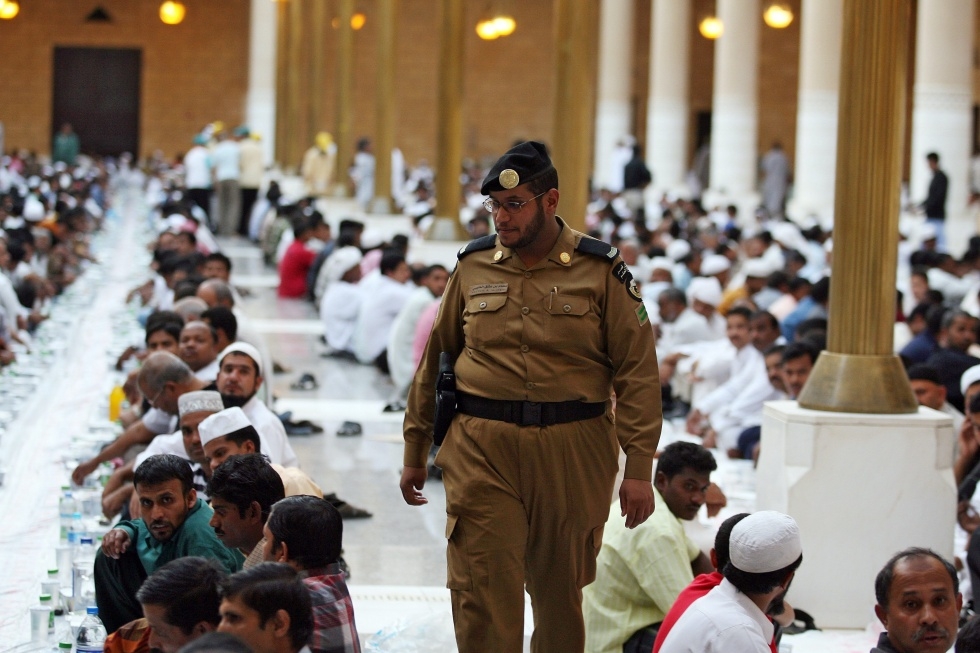Saudi minister warns 'Jews, Christians and infidels' threaten the country

The Minister of Islamic Affairs in Saudi Arabia warned the country faces attack from a “dangerous trinity of Jews, Christians and infidels”, when speaking to the media today.
Sheikh Saleh bin Abdul Aziz Al Sheikh said threats to Saudi Arabia are “not specific to the Muslim Brotherhood” and include “Western liberal trends and other Islamic and non-Islamic movements” in an interview with Al Hayat newspaper.
Sheikh Saleh has been Minister of Islamic Affairs since 1996 and is a member of the country’s leading religious family. The Al Sheikhs are descendants of Muhammad ibn Abd al-Wahhab, founder of Wahhabism, who formed a power sharing arrangement with the Al Saud rulers 300 years ago.
Saudi Arabia has cracked down on political activity in the Kingdom recently, by banning tshe Muslim Brotherhood and passing a counter-terrorism law that bars anyone from criticising authorities or calling for reform.
These kinds of statements are commonly made by figures within the religious establishment, according to local sources.
New MEE newsletter: Jerusalem Dispatch
Sign up to get the latest insights and analysis on Israel-Palestine, alongside Turkey Unpacked and other MEE newsletters
Waleed Abu Al Khair, a human-rights lawyer in Jeddah, told Middle East Eye, “Sheikh Saleh was not speaking in his role as a government official, but used his position to gain a platform to air his views. It is not unusual to hear this sort of statement every week in mosques across the country.”
Analysts say the rulers and religious leaders want the pubic to believe the country is facing danger from internal and external threats.
Dr Madawi Al Rasheed, expert on Saudi Arabia, also told MEE that “this statement [by Sheikh Saleh] reflects how authorities want the public to believe they are surrounded by hostile forces, when in reality the most pressing problems come from internal power struggles and economic grievances from a disaffected youth.”
When responding to a question about his ministry censoring Imams seen as supportive of the banned Muslim Brotherhood Sheikh Saleh said, “our Imams are subject to strict censorship and if they do not abide by the country’s regulations then they will be punished”.
Some religious clerics have complied with the censorship by removing the four-fingered “Rabaa salute” from their Twitter accounts, a symbol that has been used to show solidarity with those who were killed outside mosques in Cairo by the Egyptian army last year. Others have not removed the sign, despite a widespread crackdown on Muslim Brotherhood supporters.
Economic grievances have been raised recently by members of the public in a series of YouTube videos known as the “ID protests”. Three men were arrested on 30 March after posting videos that have been viewed millions of times in which they showed their identification cards to the camera before addressing the King to complain about a lack of economic opportunities in the country.
Middle East Eye delivers independent and unrivalled coverage and analysis of the Middle East, North Africa and beyond. To learn more about republishing this content and the associated fees, please fill out this form. More about MEE can be found here.

